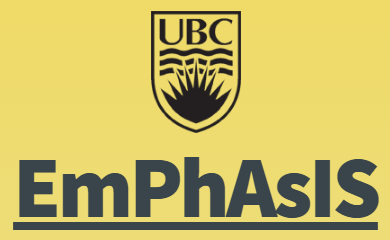Guest Post: Join Pharmacists to Study Mobile Health and Asthma Medication Adherence
Pharmacists are ideally suited to impact medication adherence given their training, skills, and frequent contact with patients – up to eight times more often than physicians. These characteristics are important considering that the World Health Organization estimates that only 50% of patients adhere to chronic therapies. This is especially true amongst patients with asthma as despite guidelines recommending the daily use of controller medications, adherence rates are as low as 22%. With 2.4 million Canadians and over 300 million people worldwide suffering from asthma, non- adherence to controller medications leads to adverse patient health outcomes and productivity loss that lend to economic burden on the health care system and society.
UBC’s Faculty of Pharmaceutical Sciences is leading the way in innovative research to better understand and more importantly, address the problem of non-adherence. The EmPhAsIS Study (Empowering Pharmacists in Asthma Management through Interactive SMS) led by Dr. Mary De Vera and funded by the College of Pharmacists of BC, the Canadian Institutes of Health Research, and the Canadian Foundation for Innovation, focuses on a simple intervention of enhanced involvement of community pharmacists in asthma management by supporting them with mobile health technology (mHealth).
Launched on May 05, 2015, EmPhAsIS Study equips participating community pharmacies across British Columbia with mHealth to interact with their patients. Asthma patients recruited into the study will receive education and support by way of centralized monthly text messages to assess adherence with their asthma therapy and follow-up from their pharmacist if responses to the text messages signal a potential non-adherence problem. Transmission of text messages are centralized via WelTel, a text-messaging platform developed at UBC. Ultimately, the EmPhAsIS Study aims to emphasize the role of community pharmacists as champions for adherence, by supporting practice with a simple but ubiquitous mHealth technology that provide a means for communication with patients and the opportunity to efficiently monitor adherence.
To date, more than 85 pharmacies across British Columbia are research partners in the EmPhAsIS Study and 203 participants have been enrolled so far.
Interested in joining these colleagues who are participating in exciting pharmacy practice research in mHealth technologies and adherence and leading the way for innovative practice? EmPhAsIS Study pharmacies are provided with training to conduct the study by phone, webinar, workshops, or local site visits, along with all study materials, on-going support throughout the study, access to resources, and finally, recognition to the pharmacy as a research partner.
For more information, please visit our website: http://emphasis.core.ubc.ca/
 Dr. Mary De Vera is a pharmacoepidemiologist and assistant professor in medication adherence in the Faculty of Pharmaceutical Sciences at UBC. She completed a BSc degree in biochemistry at UBC and MSc and PhD degrees in health care and epidemiology from the UBC School of Population and Public Health. She also completed post-doctoral fellowships at the University of Montreal's Faculty of Pharmaceutical Sciences and UBC's Faculty of Pharmaceutical Sciences.
Dr. Mary De Vera is a pharmacoepidemiologist and assistant professor in medication adherence in the Faculty of Pharmaceutical Sciences at UBC. She completed a BSc degree in biochemistry at UBC and MSc and PhD degrees in health care and epidemiology from the UBC School of Population and Public Health. She also completed post-doctoral fellowships at the University of Montreal's Faculty of Pharmaceutical Sciences and UBC's Faculty of Pharmaceutical Sciences.
 Natasha Campbell is a research manager at UBC’s Collaboration for Outcomes Research and Evaluation (CORE) located within the Faculty of Pharmaceutical Sciences. She has recently moved to Vancouver and joined the CORE group, previously completing her MSc at McGill University in 2012, then working as a clinical research coordinator for multi-center international trials at the Montreal Neurological Institute & Hospital’s Clinical Research Unit.
Natasha Campbell is a research manager at UBC’s Collaboration for Outcomes Research and Evaluation (CORE) located within the Faculty of Pharmaceutical Sciences. She has recently moved to Vancouver and joined the CORE group, previously completing her MSc at McGill University in 2012, then working as a clinical research coordinator for multi-center international trials at the Montreal Neurological Institute & Hospital’s Clinical Research Unit.
- UBC, Guest Post, Technology, Health Tech, Innovation

 Share
Share


